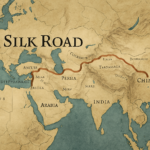
St. Patrick’s Day is popular today for drinking green beer and wearing green clothes. However, St. Patrick’s Day, which is celebrated on March 17th each year, has both religious and cultural influences and is named after St. Patrick. the most famous patron Saint of Ireland who lived from 385-461 A.D.. St. Patrick’s Day is a celebration that commemorates the arrival of Christianity in Ireland and St. Patrick himself; it also aims to celebrate Ireland’s culture and heritage. St. Patrick was born in Roman Britain, abducted at the age of 16 and brought to Ireland to serve as a slave, escaped and returned home studying to be a priest. He returned to Ireland and began teaching Irish Christianity.
In the early 17th century, St. Patrick’s Day became a Christian holiday and is recognized by the Anglican, Catholic, Eastern Orthodox, and Lutheran churches.
It is also known as the Feast of Saint Patrick and the ‘Day of the Festival of Patrick’ (Lá Fhéile Pádraig in Irish).
Saint Patrick used the shamrock, to teach the Irish Pagans about the Holy Trinity.
Saint Patrick’s father was a Christian priest.
Saint Patrick taught Christianity for 30 years. He died on March 17th, 461 A.D.
The reason for choosing March 17th as St. Patrick’s Day is because that is the day he died.
The color originally associated with St. Patrick’s Day was blue. It eventually changed to green. In the 1600s people began to wear shamrocks and green ribbons on St. Patrick’s Day.
In Irish legends, immortals and fairies were often dressed in green. People also wore it to encourage the growth of their crops.
In 1798, Irish soldiers wore green uniforms on March 17th to make a political statement.
St. Patrick’s Day celebrations often include attending church, parades, festivals, and wearing shamrocks or green clothing.
St. Patrick’s Day falls during Lent, but the restriction of drinking alcohol and eating are lifted for the day. This is believed to be the reason why drinking became such a strong St. Patrick’s Day tradition.
One legend says that Saint Patrick drove snakes out of Ireland. It is actually symbolic of converting the Pagans to Christianity.
The first St. Patrick’s Day parade was held in Boston in 1737, not in Ireland.
Rivers in Chicago have often been dyed green on St. Patrick’s Day.
Catholics often attend church in the morning, and then watch a St. Patrick’s Day parade.
Some people wear a shamrock on their lapel on St. Patrick’s Day. In Ireland the children wear orange, green and white badges; some wear bunches of shamrocks on their jackets and the girls and women often wear green ribbons in their hair.
The Irish flag is orange, white and green.
Some people dye their hair green for St. Patrick’s Day.
Wearing green on St. Patrick’s Day is supposed to stop you from being pinched.
It’s common for bars to serve green beer on St. Patrick’s Day.
Approximately 34 million Americans have Irish ancestors. Ireland only has 4.1 million people.
Of those who signed the Declaration of Independence, nine had Irish origins.
19 of the Presidents of the U.S. had Irish heritage, including George Washington.









